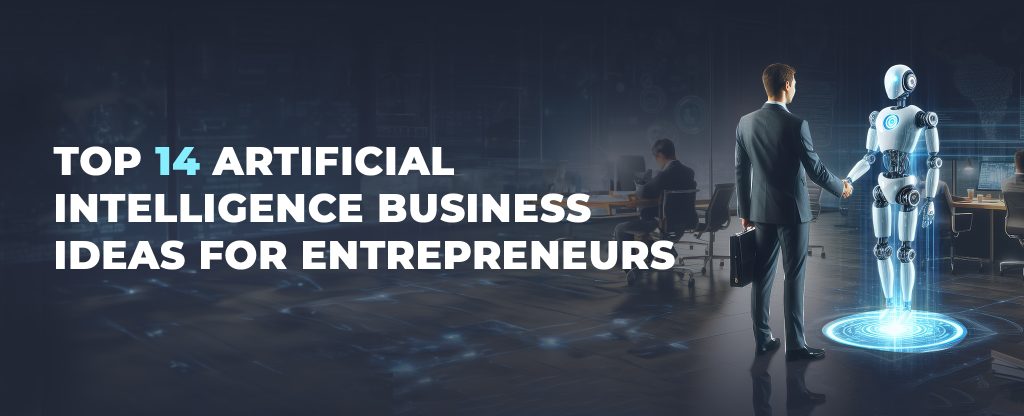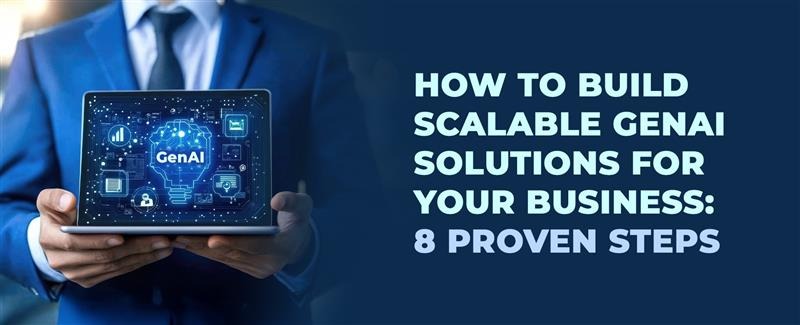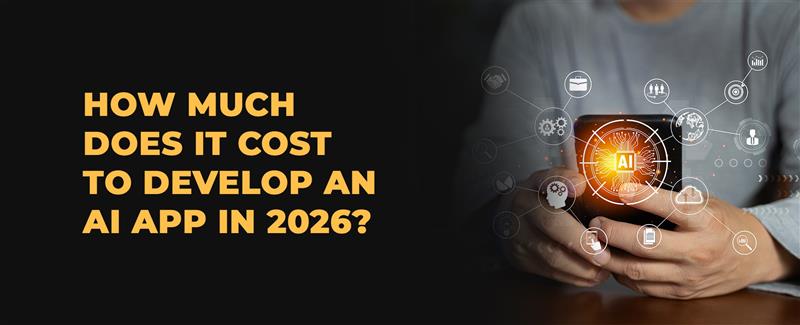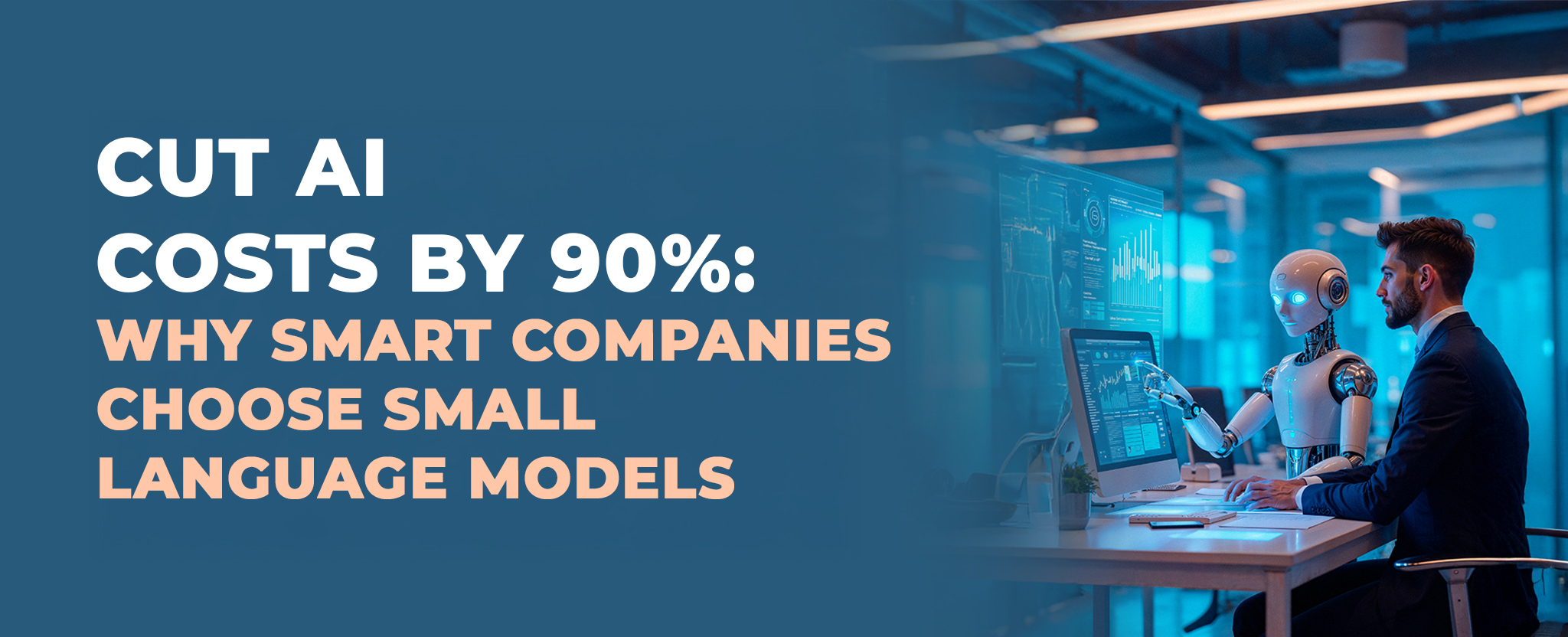Top 14 Artificial Intelligence Business Ideas for Entrepreneurs
17 Sep 24 


AI has changed the way businesses operate, and interact with customers. Insightful data from AI tools fosters highly effective data-driven decision making, this in turn offers superior customer satisfaction. An ecommerce website selling lipsticks or clothes with a “try on” feature is a great value-addition for a shopper, is a case in point.
Data collected from customer feedback helps in offering more personalized services to customers, building brand loyalty and resulting in higher customer retention rates. AI tools are used for predictive forecasts. This helps businesses optimize sales and marketing campaigns too. Thanks to AI, today you can purchase a brand new, trending pair of spectacles within the comforts of your home. Again the try on feature significantly enhances customer experience.
It is estimated that returns have come down spectacularly after its implementation. Fewer returns means fewer refund hassles.
According to recent studies, the global AI market is projected to experience substantial growth, with an estimated compound annual growth rate of 38.1% and a predicted value of $1.59 trillion by 2030.
In this article, you’ll gain insights into the current market structure and how businesses are using artificial intelligence in their operations. We’ll dive into the most promising AI startup ideas for entrepreneurs to consider, covering areas like AI app development and artificial general intelligence.
A good look at market structure
The AI industry is growing rapidly, with new technologies and innovations emerging all the time. The market will grow even more, and it will be worth over $1.3 trillion by 2030, up from about $214.6 billion in 2024. That’s a huge jump!
A lot of this growth is due to improvements in technology, especially in machine learning and data analysis. As computers get faster and we collect more data, we can create more complex and powerful AI systems.
When examining the market structure, it’s important to note that the field’s nascent stage of development makes it challenging to establish clear boundaries between industries or applications. However, several key segments and trends have emerged:
Software Segment:
The software app development industry is expected to become the largest market segment in the AI market by revenue in 2024. It plays an important role in enabling different AI applications across sectors. This category encompasses both discriminative AI, which specializes at categorization and prediction, and generative AI, which is notable for producing new content and simulating scenarios.
Machine Learning:
Machine Learning is still the largest segment of the AI market in 2024, and it is likely to remain so until at least 2030. Its subtype, deep learning, is far more sophisticated, yet it includes some of the most prominent chatbots built since the expansion of generative AI in 2022.
Context-aware AI:
This technology is slated to register the highest growth rate during the forecast period. It’s expected to become the fastest-growing market segment between 2024 and 2030 due to its capability to deliver highly personalized and adaptive user experiences by comprehending situational context.
Marketing & Sales:
This business function is estimated to hold the largest market share in 2024 due to the significant impact AI technologies have on optimizing customer engagement, targeting, and conversion strategies
Healthcare and Life Sciences:
This industry is poised to become the fastest-growing market segment in the AI market during the forecast period. The increasing adoption of electronic health records (EHRs) and the digitization of medical data have created vast repositories of information ripe for AI-driven analysis and insights.
Asia Pacific:
This region is set to emerge as the fastest-growing in the AI market, driven by robust economic growth in emerging markets such as China, India, and Southeast Asia.
It’s worth noting that the AI market is characterized by a high level of merger and acquisition (M&A) activity by leading players. This is due to several factors, including the desire to gain access to new AI technologies and talent, the need to consolidate in a rapidly growing market, and the increasing strategic importance of AI.
As you consider entering the AI market, be aware that the industry is subject to increasing regulatory scrutiny due to concerns about potential negative impacts such as algorithmic bias, privacy violations, and job displacement. Governments worldwide are developing regulations to govern the development and use of AI, which could significantly impact the market.
When it comes to competition, there are a limited number of direct product substitutes for AI. However, several technologies can be used to achieve similar outcomes, such as automation, rule-based systems, and expert systems. These technologies can be used as substitutes for AI in certain applications, but they typically don’t offer the same level of performance or flexibility as AI.
Lastly, end-user concentration is a significant factor in the AI industry. There are several end-use verticals driving demand for AI solutions. This concentration of demand in a small number of end-user industries creates opportunities for companies that focus on developing AI solutions for these specific sectors. However, it also presents challenges for companies trying to compete in a crowded market.
As you navigate this complex and rapidly developing market, keep in mind that determining segments is a high-level art and science. It’s a creative task that requires a well-informed perspective. While there may not be a consensus across research firms on how to segment the market, understanding these key trends and market structures will help you identify opportunities and challenges in the AI industry.
How businesses are using artificial intelligence in their operations?
Artificial intelligence (AI) has become a game-changer for businesses across various industries. As you explore the world of AI-driven business operations, you’ll find that companies are leveraging this technology to enhance efficiency, improve decision-making, and create innovative products and services.
One of the primary ways businesses are using AI is through machine learning algorithms. These algorithms analyze vast amounts of data to identify patterns and make predictions, enabling companies to optimize their processes and make data-driven decisions.
For instance, in the retail sector, AI-powered systems can forecast demand, manage inventory, and personalize product recommendations for customers.
AI is also transforming customer service operations. Many businesses now employ chatbots and virtual assistants to handle customer inquiries and provide support 24/7. These AI-driven tools can understand natural language, answer frequently asked questions, and even handle complex issues by routing them to human agents when necessary. This not only improves response times but also allows human staff to focus on more complex tasks that require empathy and critical thinking.
In the manufacturing sector, AI is revolutionizing production processes through predictive maintenance and quality control. By analyzing data from sensors and equipment, AI systems can predict when machinery is likely to fail, allowing for proactive maintenance and reducing costly downtime.
Additionally, computer vision technology powered by AI can detect defects in products with greater accuracy and speed than human inspectors.
Marketing and sales departments are also benefiting from AI applications. Businesses are using AI to analyze customer behavior, segment audiences, and create targeted marketing campaigns. AI-powered tools can optimize ad placement, personalize content, and even generate creative elements for marketing materials.
In sales, AI can help prioritize leads, predict customer churn, and provide sales representatives with real-time insights to improve their performance.
Financial institutions are leveraging AI for fraud detection and risk assessment. Machine learning algorithms can analyze transaction patterns and identify anomalies that may indicate fraudulent activity.
In lending, AI models can assess creditworthiness more accurately by considering a broader range of factors than traditional methods.
Healthcare organizations are using AI to improve patient care and streamline operations. AI-powered diagnostic tools can analyze medical images to detect diseases earlier and more accurately. In hospital management, AI can optimize patient scheduling, predict admission rates, and even assist in drug discovery processes.
In the transportation and logistics sector, AI is enhancing route optimization, demand forecasting, and autonomous vehicle technology. Companies are using AI to predict traffic patterns, optimize delivery routes, and improve fleet management, leading to reduced costs and improved efficiency.
As you consider implementing AI in your business operations, it’s important to remember that successful adoption requires careful planning, data management, and often, cultural changes within the organization. However, the potential benefits in terms of efficiency, innovation, and competitive advantage make AI an increasingly essential tool for businesses across all sectors.
Most lucrative Ai Startup ideas to explore
As an entrepreneur looking to venture into the world of artificial intelligence, you have a wealth of opportunities to explore. The AI landscape is ripe with potential for innovative startups that can revolutionize various industries. Let’s dive into some of the most promising AI startup ideas that you can consider:
1. AI-based retail assistance solution
In the retail sector, AI can transform the shopping experience. You can develop a solution that uses computer vision and machine learning to help customers find products, provide personalized recommendations, and even assist with virtual try-ons for clothing and accessories.
2. AI-based entertainment platform
Entertainment is another field where AI can make a significant impact. Consider creating a platform that uses AI to generate personalized content recommendations, create interactive storytelling experiences, or even compose music tailored to individual preferences.
3. AI-based recruitment app
The hiring process can be streamlined and improved with AI. Your startup could focus on developing an app that uses natural language processing to screen resumes, conduct initial interviews, and match candidates with job openings more effectively.
4. AI-based logistics and supply chain management solution
Logistics and supply chain management are ripe for AI disruption. You can create a solution that optimizes routes, predicts demand, and manages inventory in real-time, helping businesses reduce costs and improve efficiency.
5. AI healthcare platform
Healthcare is a sector where AI can truly make a difference. Consider developing a platform that assists with diagnosis, treatment planning, or patient monitoring using machine learning algorithms trained on vast medical datasets.
6. AI marketing app
Marketing is another area where AI can provide valuable insights. Your startup could focus on creating an app that analyzes consumer behavior, predicts trends, and automates personalized marketing campaigns across various channels.
7. Generative AI-powered content creation tool
With the rise of generative AI, there’s a growing demand for tools that can create content. You could develop a platform that generates written content, images, or even videos based on user inputs and preferences.
An example of such innovation is the AI music creation platform, LoudMe AI.
8. AI e-learning platform
Education is being transformed by AI. Consider creating an e-learning platform that adapts to individual learning styles, provides personalized feedback, and creates custom curriculum paths for students.
9. AI energy optimization solution
As energy efficiency becomes increasingly important, there’s a need for AI solutions in this space. Your startup could focus on developing systems that optimize energy usage in buildings, factories, or even entire cities.
10. AI-Based smart finance robotic process automation app
In the finance sector, AI can automate many tedious processes. You could create an app that handles tasks like data entry, reconciliation, and even basic financial analysis, freeing up human workers for more complex tasks.
11. A IoT App
The Internet of Things (IoT) combined with AI opens up new possibilities. Consider developing an app that manages and analyzes data from various IoT devices, providing insights and automating actions based on that data.
12. AI-Driven cybersecurity app
With the increasing sophistication of cyber threats, there’s a growing need for AI in cybersecurity. Your startup could focus on creating an app that uses machine learning to detect and respond to threats in real-time.
13. AI-based smart home solution
The smart home market is growing rapidly. You could develop a solution that uses AI to manage home systems more efficiently, learning from user behavior to optimize energy usage, security, and comfort.
14. AI-powered video analytics solution
Video analytics is another area with great potential. Consider creating a solution that can analyze video feeds for security purposes, retail analytics, or even sports performance analysis.
Each of these ideas represents a unique opportunity to leverage AI in solving real-world problems. As you explore these options, consider your own expertise, market demand, and the potential for growth and scalability.
On a final note
The world of Artificial Intelligence (AI) is full of opportunities for entrepreneurs. There are many exciting ideas to explore, from helping retailers work better to making financial transactions smarter. These AI-powered solutions can bring big changes to different industries, making things more efficient and creating new possibilities.
If you’re thinking of starting an AI business, remember that it’s not just about having the latest technology. You need to find real problems and come up with solutions that really help people.
To succeed, keep an eye on what’s happening in the market and focus on areas where AI can make a big difference. This will put you in a good position to make a name for yourself in this rapidly growing field.
FAQs
What are some promising AI business ideas to start?
Several AI business ideas are gaining traction and could be promising ventures, such as:
- Personalized Home Automation Systems
- Proactive Energy Management Tools
- Advanced Security and Monitoring Systems
- Accessibility Enhancements for Disabled Individuals
- AI-Powered Companions for Health and Social Care
- Niche-Specific AI Solutions Tailored to Specific Industries
- Data-Driven Insight and Optimization Services
- AI-Enhanced Maintenance and Repair Services
How can I establish an AI-based startup?
To start an AI business, follow these essential steps:
- Gain a solid understanding of artificial intelligence and its potential applications.
- Define a clear business model that leverages AI.
- Assemble a skilled team knowledgeable in AI.
- Utilize robust AI technology and infrastructure to support your business.
- Develop innovative AI products and solutions that meet market needs.
Which types of businesses are integrating AI into their operations?
Many businesses across various industries are incorporating AI to enhance efficiency, improve customer experiences, and optimize operations. Specific examples include healthcare for patient management systems, retail for personalized shopping experiences, and finance for automated trading and risk management.
- Agentic AI1
- Android Development3
- Artificial Intelligence38
- Autopay1
- Classified App3
- Custom App Development5
- Digital Transformation12
- Doctor Appointment Booking App14
- Dropshipping1
- Ecommerce Apps40
- Education Apps2
- Fintech-Apps38
- Fitness App4
- Flutter4
- Flutter Apps20
- Food Delivery App5
- Grocery App Development1
- Grocery Apps3
- Health Care10
- IoT2
- Loyalty Programs11
- Matrimony Apps1
- Microsoft1
- Mobile App Maintenance2
- Mobile Apps134
- On Demand Marketplace1
- Product Engineering6
- Progressive Web Apps1
- React Native Apps2
- Saas Application2
- Shopify9
- Software Development3
- Taxi Booking Apps7
- Truck Booking App5
- UI UX Design8
- Uncategorized7
- Web App Development1



















Comments